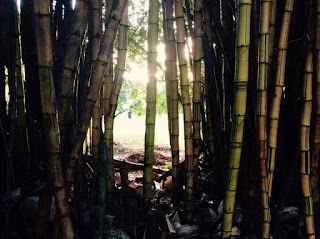During my stay at the Kaiwa Mission I became involved in doing some translation of a book with information on Albert Maxwell. As the founder of the Mission he is well known for his contribution to the work among indigenous tribes in the state of Mato Grosso, on Brazil's border with Paraguay. But how he came to start the work here and the story of his life was unknown until discovering that his son had written, but never published, a biography.
All of us have life stories which include the people and events that shape them. Albert Maxwell's story was strongly influenced by his knowledge of the Jesuits' work in Paraguay, explorers of the jungles of Brazil's interior, and his fearless faith in a loving God.
For more than a century the Jesuit priests worked with the Guarani people along the Parana River on the border of Paraguay and Brazil. They provided education and the skills to govern and defend themselves against slavery. The missions, backed by the Spanish crown, were hugely successful. The Guarani people were intelligent, peace-loving and very receptive to learning new skills. The white settlers were both jealous of their improved situation, and frustrated by their inability to enslave them. This led to violence as the Brazilian mamelocos attacked the missions, massacred and captured huge numbers of the tribe. Finally, in 1759 the king of Spain withdrew his support, expelling the Jesuits and leaving the Guarani to suffer their fate at the hands of the Brazilian government, where many had fled. Albert Maxwell encountered their descendents living along the banks of the Tabagi River in the state of Parana some 150 years later. He remarked that these people were friendly and very receptive to his desire of providing them with education and medicine.
This was the first group of indigenous people Albert had contact with in Brazil. He had left his home in South Carolina to study seminary in Virginia with the express desire to work with the tribes of Brazil because of what happened to the Guarani. He applied to the Mission Board of his church only to be turned down. His vision of bringing education, food and medicine to people who lived in isolation in the jungle did not fit with the church's mission goals of the time. Their knowledge of the Brazilian tribes was quite limited and any attempt to contact them seemed like a mission fraught with peril and doomed to failure. Albert packed his bags, borrowed money for fare and set sail anyway on the next ship to Rio de Janeiro, Brazil, in 1916.


No comments:
Post a Comment